Related Research Articles
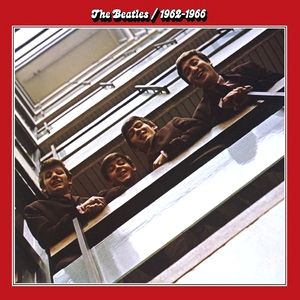
1962–1966, also known as the Red Album, is a compilation album of hit songs by the English rock band the Beatles, spanning the years indicated in the title. Released with its counterpart 1967–1970 in 1973, the double LP peaked at number 3 in the United Kingdom. In the United States, it topped the Cash Box albums chart and peaked at number 3 on the Billboard Top LPs & Tape chart while 1967–1970 reached the top spot. The album was re-released in September 1993 on compact disc, charting at number 3 in the UK.
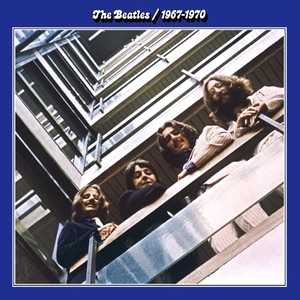
1967–1970, also known as the Blue Album, is a compilation album of songs by the English rock band the Beatles, spanning the years indicated in the title. A double LP, it was released with 1962–1966 in April 1973. 1967–1970 topped the Billboard albums chart in the United States and peaked at number 2 on the UK Albums Chart. It was re-released in September 1993 on CD, charting at number 4 in the United Kingdom.

Anthology 3 is a compilation album by the Beatles, released on 28 October 1996 by Apple Records as part of The Beatles Anthology series. The album includes rarities and alternative tracks from the final two years of the band's career, ranging from the initial sessions for The Beatles to the last sessions for Let It Be and Abbey Road in 1969 and early 1970. It is the last in a trilogy of albums with Anthology 1 and Anthology 2, all of which tie in with the televised special The Beatles Anthology.

The English rock group The Rolling Stones have released 31 studio albums, 13 live albums, 28 compilation albums, 3 extended plays, 122 singles, 31 box sets, 51 video albums, 2 video box sets and 77 music videos. Throughout their career, they have sold over 200 million records worldwide, making them one of the best-selling music artists of all time. Billboard ranked them as the 2nd Greatest artist of all time. The Rolling Stones have scored 38 top-10 albums on the Billboard 200 and 8 No. 1 hits on the Billboard Hot 100. According to the Recording Industry Association of America, they have sold 66.5 million albums in the US, making them the 16th best-selling group in history.

Yesterdays is the first compilation album by the English progressive rock band Yes, released in February 1975 on Atlantic Records. It consists of material previously recorded for the band's first two studio albums, Yes (1969) and Time and a Word (1970), "Dear Father" their 1970 B-side of the single "Sweet Dreams", and the full version of their cover of "America" by Simon & Garfunkel. "America" was previously unreleased on a Yes album having only been released on an Atlantic Records' sampler album "The New Age of Atlantic" in 1972. Yesterdays is the last Yes album to feature cover artwork by Roger Dean until the 1980 album Drama.
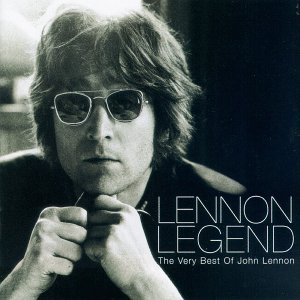
Lennon Legend: The Very Best of John Lennon is the third official compilation album of John Lennon's solo career, coming after 1975's Shaved Fish and 1982's The John Lennon Collection. Because neither collection spanned Lennon's releases up to and including 1984's Milk and Honey, Lennon Legend: The Very Best of John Lennon – considered the definitive Lennon retrospective – was compiled. It was released in the UK in 1997 through Parlophone and early 1998 in the US by EMI Records.

Greatest Hits is the eleventh official album release for English musician Elton John, and the first compilation. Released in November 1974, it spans the years 1970 to 1974, compiling ten of John's singles, with one track variation for releases in North America and for Europe and Australia. It topped the album chart in both the United States and the United Kingdom, staying at number one for ten consecutive weeks in the former nation and eleven weeks in the latter. In Canada, it was number one for 13 weeks between December 14, 1974, and March 22, 1975, missing only December 28, 1974, at number 2 to Jim Croce's Photographs & Memories.
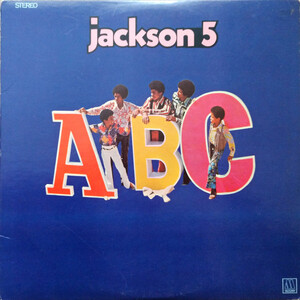
ABC is the second studio album by the Jackson 5, released on May 8, 1970 by Motown. It featured the No. 1 singles "ABC" and "The Love You Save". Also present on the LP are several notable album tracks, including a cover of Funkadelic's "I'll Bet You", "I Found That Girl", and "The Young Folks", originally recorded by Diana Ross and the Supremes.
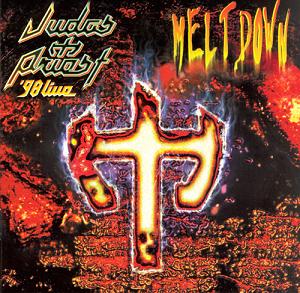
'98 Live Meltdown is a concert album by Judas Priest, recorded and released in 1998 and is the first live album to feature new lead singer Tim "Ripper" Owens, recorded during the Jugulator World Tour. A second live album featuring Owens, Live in London, was released in 2003.

Puzzle People is the eleventh studio album released by American soul quintet The Temptations for the Gordy (Motown) label in 1969. Produced entirely by Norman Whitfield, Puzzle People expanded on the psychedelic soul sound of the Temptations' previous LP, Cloud Nine. Although a few straightforward soul ballads are present, the album is primarily composed of Sly & the Family Stone/James Brown-derived proto-funk tracks such as the lead single "Don't Let the Joneses Get You Down", and the number-one Billboard Pop hit "I Can't Get Next to You".
Oricon Inc., established in 1999, is the holding company at the head of a Japanese corporate group that supplies statistics and information on music and the music industry in Japan and Western music. It started as Original Confidence Inc., which was founded by Sōkō Koike in November 1967 and became known for its music charts. Oricon Inc. was originally set up as a subsidiary of Original Confidence and took over the latter's Oricon record charts in April 2002.

Have You Never Been Mellow is the fifth studio album by British-Australian singer Olivia Newton-John, released on 12 February 1975 by MCA Records.

Clearly Love is the sixth studio album by Olivia Newton-John, released in September 1975.

Come On Over is the seventh studio album by British-Australian singer Olivia Newton-John, released in March 1976. The album peaked at number two on the US Top Country Albums chart and number 13 on the US Billboard 200.

Now & Then is the fifth studio album by the American music duo the Carpenters, released on May 1, 1973. It reached No. 2 on the Billboard Top LPs & Tape chart on July 21, 1973, and ranked No. 20 on the Cash Box year-end pop albums chart. The title, suggested by Karen and Richard's mother Agnes, was taken from a leftover song that did not appear on the album.

Let Me Be There is the third studio album by British-Australian singer Olivia Newton-John. It was originally released in November 1973 as Music Makes My Day in the United Kingdom, by Pye International Records, and shortly after in Australia as Let Me Be There, which became its most recognisable name. In the United States and Canada, Let Me Be There was released with an alternative tracklist, combining songs from the original release with other tracks from Newton-John's previous albums If Not for You and Olivia.
The Oricon Albums Chart is the Japanese music industry standard albums popularity chart issued daily, weekly, monthly and yearly by Oricon. Oricon originally published LP, CT, Cartridge and CD charts prior to the establishment of the Oricon Albums Chart on October 5, 1987. The Oricon Albums Chart's rankings are based on physical albums' sales.

Hello! The Osmond Brothers is an album released by The Osmonds in 1970. Most songs were recorded in Japanese, and some were recorded in English. The album was released in Japan. Four singles were released from the album. Chitchana Koibito, Young Love Swing, Movin' Along and Chance. The single, Chitchana Koibito, was sung by Jimmy and reached No. 1 on the Japan charts. The album was released about a month before they signed with MGM Records.
References
- 1 2 Oricon Album Chart Book: Complete Edition 1970-2005. Roppongi, Tokyo: Oricon Entertainment. 2006. ISBN 4-87131-077-9.